Somewhere in hell, there is a cavernous hall filled with row upon row of people playing online speed chess. Their games bear not a trace of exuberance or wit. Instead, these wretched souls are confronted with utterly sterile positions, perhaps a lone king and rook on each side, but their flinty, remote adversaries will not agree to a draw. Instead, they shuffle the pieces back and forth – a pointless rook check here, a king sally there, and before long our infernal victims have run out of time, and lost. They curse at the injustice, and yet the next game is groundhog day.
If you play enough games online, you too will run into one of these unscrupulous opponents, who stop at nothing in pursuit of the full point. In those miserable final seconds, I find myself overcome by a mix of panic, boredom and misanthropy. By contrast, I harbour no ill-feeling for an opponent who plays for time in a hopeless position. When I’m trying to win, that is fair game. When I’m determined to make peace, that’s just not cricket.
I must admit that my instincts are somewhat old-fashioned, rooted in a time when chess was played with analogue clocks. With both flags ticking higher, nobody really knew how many seconds were left, so running down the opponent’s clock could easily backfire. With digital clocks, there is a cold certainty over who holds the edge, and who wouldn’t want to exploit that?
Unforgiving as it is, at least that modern ethos still leads to a clean sort of fight when the game is played on a digital board. In the desperate final seconds of play on a physical board, matters can degenerate rather quickly. Rooks move to ‘f7½’, or are sent clattering across the board. None of that nonsense needs to happen. Very sensibly, the world blitz championship is played at three minutes for each player, with a two second increment after every move. Those magical extra two seconds are just enough to ensure that almost all the games are decided on the board in a dignified fashion.
In fact, it mystifies me that any serious over-the-board games are still played without an increment. For no discernible reason, it has become the norm that armageddon games (the tiebreaker games in which White starts with a time advantage, but Black gets draw odds), are played without an increment. And through no fault of the players, but entirely predictably, a small but significant number come to resemble Brownian motion more than a game of skill. (The solution is obvious – players should begin with even less time, but receive an increment from the start).
This year’s World Chess Armageddon Championship Series has seen a couple of such incidents. One egregious example occurred in a game between American grandmasters Andrew Tang and Leinier Dominguez earlier this year, while another occurred in Berlin last month.
Alexander Donchenko–Michael Adams
Armageddon Championship Series, Berlin, 2023
51 Bb3? Donchenko missed a neat win here: 51 Bd3 Rd2 53 f6! threatens Rd8# so 53…Rxd3 54 Rxd3 b4 55 Rc8+ Kh7 56 Rc8 Kg6 Rc5! and White wins. c2 52 Bxc2 52 Rc7 Re1+ and the pawn promotes. Rxc2 53 f6? 53 Rb7 still draws Rc5 54 Kh2 Rxg5 55 Rd8+ Kh7 56 Rd7 Kg6 57 Kh3 Rg3+ 58 Kxh4 Rf3 59 Rd6 Rxf6 By now, Adams’s position on the board is unassailable. But a draw would count as a loss for Donchenko, who had no choice but to pin his hopes on his time advantage of 27 vs 12 seconds remaining. And who can blame him? That is exactly what is encouraged by the rules. Adams soon shed his pawn on b4 and ran out of time 17 meaningless moves later. Black lost on time
Got something to add? Join the discussion and comment below.
Get 10 issues for just $10
Subscribe to The Spectator Australia today for the next 10 magazine issues, plus full online access, for just $10.
You might disagree with half of it, but you’ll enjoy reading all of it. Try your first month for free, then just $2 a week for the remainder of your first year.

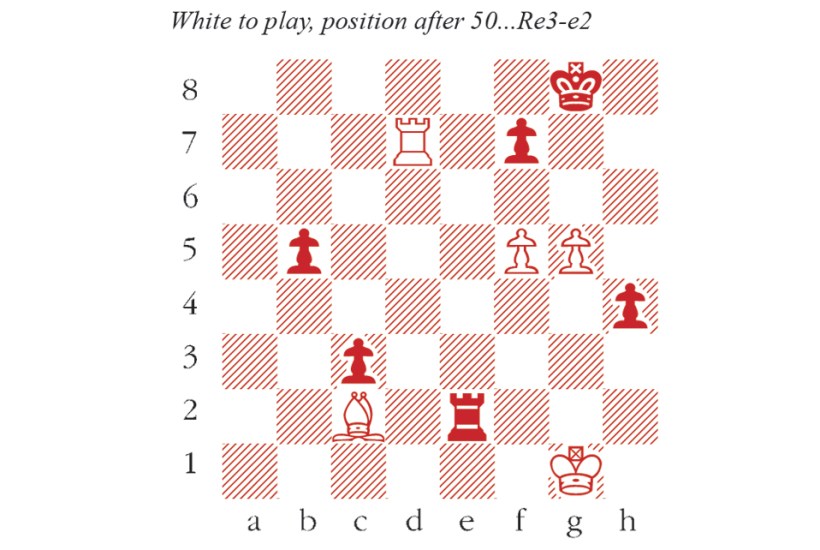
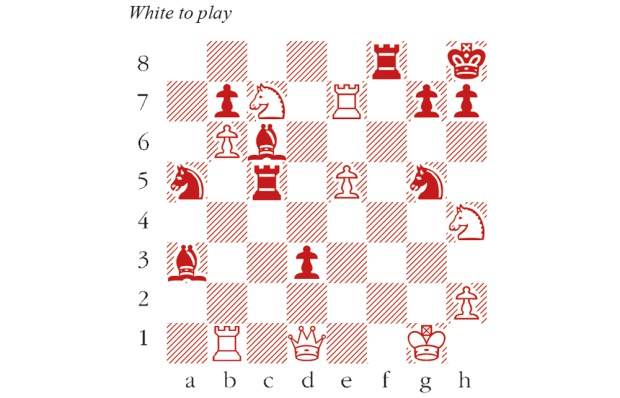
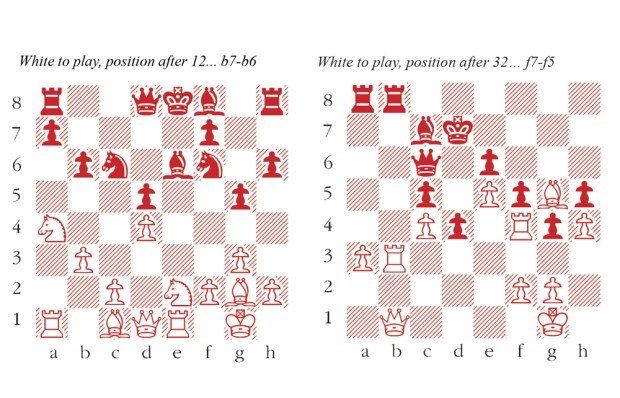
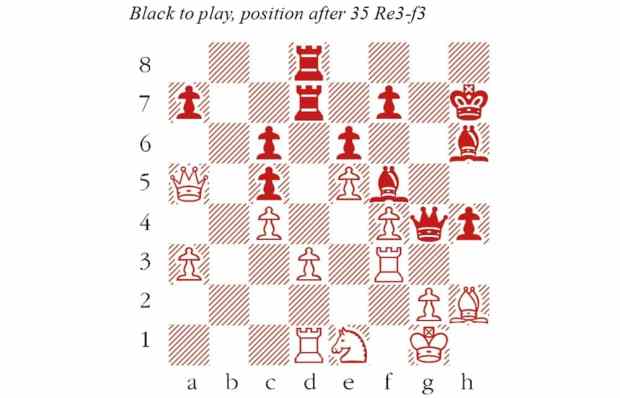
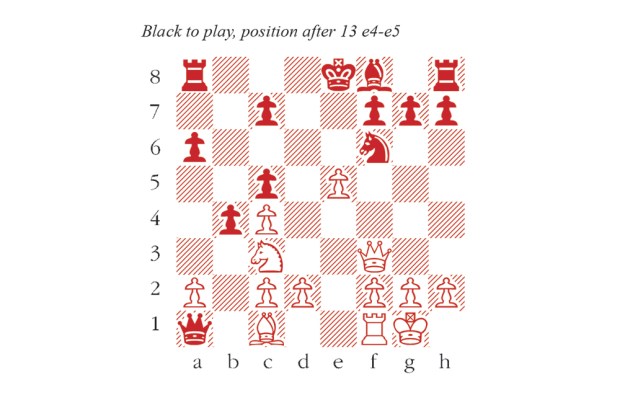

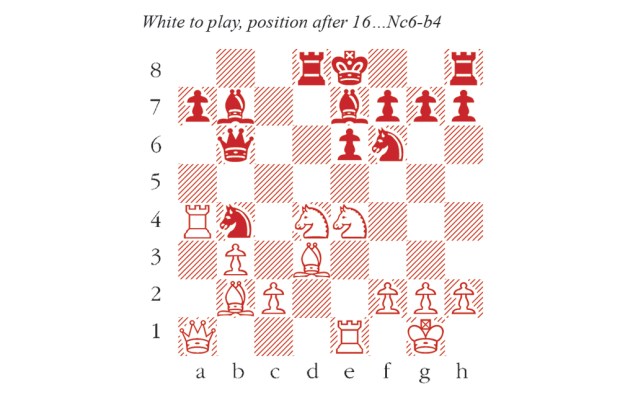






Comments
Don't miss out
Join the conversation with other Spectator Australia readers. Subscribe to leave a comment.
SUBSCRIBEAlready a subscriber? Log in